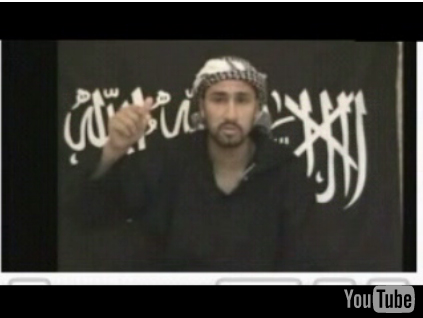Terror mastermind Abdulla Ahmed Ali guilty of bombing plot
 |
Ali, conspired to kill hundreds of people |
A young married father was found guilty today of conspiring to kill hundreds of members of the public in a terrorist bombing campaign.
Abdulla Ahmed Ali planned to detonate homemade liquid bombs in attacks on British targets, including at Heathrow Airport’s Terminal 3.
Two other men were found guilty of conspiracy to murder. One of the defendants was found not guilty and the jury was unable to reach a verdict for four other men on trial.
But embarrassingly for counter-terrorism police, the jury rejected the main charge made against the men that there was a plot to cause a series of explosions on airliners to rival the 9/11 attacks.
Related Links
Police claimed that the men were planning to use an unusual hydrogen peroxide liquid bomb disguised in soft drink bottles. The case led to the security procedures which have prevented thousands of holidaymakers carrying containers of liquid onto aircraft since 2006.
Ali, 27, was the leader of an east London al-Qaeda-inspired terror cell, a jury at Woolwich Crown Court found. He and his co-defendants, Assad Sarwar, 28, and Tanvir Hussain, 27, admitted plotting a series of small-scale headline-grabbing bomb attacks. But the jury rejected Ali’s claims he did not plan to kill or hurt anyone in the blasts. It also failed to reach verdicts on Ibrahim Savant, Arafat Waheed Khan, Waheed Zaman and Umar Islam. An eighth man, Mohammed Gulzar, was found not guilty on all counts.
The jury of eight men and four women had been deliberating for more than 50 hours at the end of a trial which began in April.
Police said the plot was drawn up in Pakistan with detailed instructions passed to Ali during frequent trips to its lawless border region with Afghanistan.
Prosecutors said his gang considered national infrastructure targets, including gas terminals and oil refineries.
Evidence revealed Canary Wharf, the Bacton gas terminal pipeline, various airports, the electricity grid and internet providers were studied.
Surveillance teams watched Ali on his return to Britain as he assembled his terror cell, gathered materials and identified targets.
Undercover officers watched the unemployed former shop worker use cash to purchase a £138,000 second-floor flat in Forest Road, Walthamstow. They then planted a secret bug that revealed it was converted into a bomb factory where Ali met others to construct the bombs.
The flat was also used as a location for Ali and others to record suicide videos threatening further attacks against the West.
In his video, Ali warned the British public to expect “floods of martyr operations” that would leave body parts scattered in the streets.
Ali was observed as he used public phone boxes, mobile phones and anonymous e-mail accounts to keep in touch with mystery terrorist organisers in Pakistan.
On his arrest, he was found carrying an elaborate and damning blueprint for the plot, scrawled in a battered pocket diary. Airport security arrangements and details of flights, including the seven highlighted services, were discovered on a computer memory stick in another pocket.
In his defence, Ali said he wanted to create an internet documentary protesting against British foreign policy in Iraq, Afghanistan and Lebanon.
He claimed the apparent suicide video, and those created by five of his co-defendants, were spoofs created to make the documentary more provocative.
Ali said the blasts would create a storm of media attention that would propel the video into the spotlight.
Despite the jury’s scepticism, security officials insist that today’s verdict would not lead to an alteration of security measures